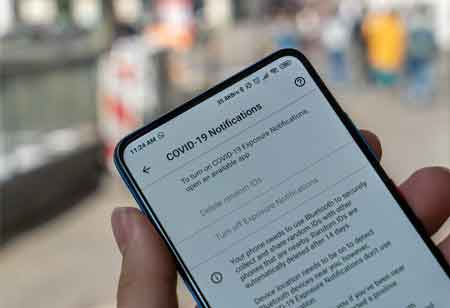THANK YOU FOR SUBSCRIBING
The Issues of Developing Coronavirus Contact Tracing Applications
Consumers are more concerned about being tracked by authorities or company managers, therefore policymakers need to redesign the administration of apps for health and social purposes.

By
Apac CIOOutlook | Tuesday, October 13, 2020
Stay ahead of the industry with exclusive feature stories on the top companies, expert insights and the latest news delivered straight to your inbox. Subscribe today.
Consumers are more concerned about being tracked by authorities or company managers, therefore policymakers need to redesign the administration of apps for health and social purposes.
Fremont, CA: Over 50 countries have implemented applications to monitor the spread of the COVID-19 pandemic and locate the contacts of people who have been infected. These applications are installed voluntarily in most countries, however, in others, it is mandatory.
Although the application promises that users’ data will be secured, there are still concerns in other countries that the application may be used as a surveillance tool.
In regards to privacy, every country has two critical aspects at risk, which are:
Many countered adopt an anonymization/pseudonymization method through Bluetooth connection. But few countries have chosen to implement a geolocation application that lacks respect for privacy.
Data Structure and Storage
Every application needs a data design, and developers have to decide between a centralized and decentralized method. In a centralized structure, data is uploaded in a server maintained by the government health authority instead of storing locally on the user’s device.
Another issue that arises is the Bluetooth-based applications’ effectiveness. Since accuracy in evaluating physical proximity and contact time are vital, further uncertainty might significantly decrease applications’ effectiveness. These factors are not only essential for functionality, but it also influences users’ perception.
With contact-tracing applications, the challenge is how to implement administration considering user’s concerns. Corporate-based technology now offers availability across borders, facilitating professional and personal mobility to respond to employees’ needs and expectations.
Another critical concern in a contact-tracing application is control. The government and health agencies want to control or centralize data, and many have implemented centralized systems developed at the national level.
Policymakers need to address their consumers that it is not only about centralized control of health data. Consumers are more concerned about being tracked by authorities or company managers, therefore they need to redesign the administration of apps for health and social purposes. Policymakers also need to incorporate and focus on customer experience in employee and citizen experiences to maintain trust in decision-makers.





